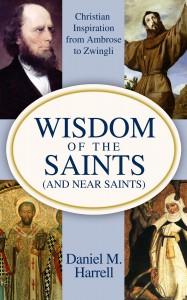Today’s guest post comes from Craig Case, one of an excellent class of students from Bethel Seminary who recently studied the intersection between faith, vocation and work.
“Work is one of those things in our daily life ‘whose meaning is hidden in the mystery of their familiarity.” -Miroslav Volf
Theology or faith and work are becoming an intriguing and invigorating dialogue in many churches, universities, and seminaries. My eyes were opened to the advancing scholarship and attention on this. Seminaries like Bethel, and its Work with Purpose Initiative, and Gordon-Conwell are tackling this critically important area of theology as to uncover more meaning on something so familiar to all of us.
Like any emerging dialogue, there are barriers and roadblocks to overcome. Perhaps the most pressing is the definition of “work”. The meaning that comes to us is quite negative. I think part of the reason is the etymology of “work”. Volf points out that “work” in Indo-European languages is closely associated with “slave” and “prisoner”. In English, the word “labor” comes from the phrase “to stumble under a burden”. This definition is not just historical but very present in American culture where the American Dream, told to countless generations, is realized through a certain amount of years “working” then retiring. My son and I escaped the brutal cold of a Minnesota January to visit my friend who retired in The Villages of Florida, where over 70,000 retirees live in a utopian bliss. While we played golf on a beautiful morning there, I struck up a conversation with a stranger between rounds. He told me he had just moved there after retiring from 35 years at Ford Automobile in Detroit. He smiled gleefully, looked upward, and exclaimed, “I’m finally free”.
This definition of work as some enterprise which imprisons us is a misconception. Work is the common thread of our culture, whether the arts, religion, politics, technology, business. And work is one of the primary expressions as the imago dei.
A cursory glance at Genesis 1 tells you that God is a worker. He creates. He makes. Humanity is made in that image, imago dei is woven out of a God who works, among other things. In fact, when you go to Genesis 2, it says that God “formed” Adam from the raw materials of land, the Hebrew for that is “yatsar” which is a technical Hebrew word for pottery. Isaiah echoes this picture of God working, forming human life. God’s work is not “to stumble under a burden”. Far from it. As Moltmann points out, God’s work is a free, playful expression of joy.
Unlike the etymological and cultural trappings of the word, “work” as far as the biblical writers were concerned brought humanity and God together. Importantly, humanity’s role in work is not isolated – for he is to partner and co-create with God. In 2:18-19, we find God bringing the animals to Adam “to see what he would name them”. Meaning, significance, and purpose to life are found in work and service to God in the world. Richard Langer remarks that “biblically, work elevates humans by making us more god-like rather than less god-like. We imitate God by work for the pleasure of “dong well something that is well worth doing” (108). Ben Witherington argues that the creation accounts in Genesis do not present creation as a done deal, “wrapped up with a big red bow and handed over to the creatures to keep it exactly as originally created. It is not a one-time production…From God’s perspective, the world needs work; development and change are what God intends for it, and God enlists human beings (and other creatures) to that end… (35).
Work needs new definitions, and as part of these new definitions it needs to be redeemed. At my church, I know of a few people who are seeking to bring about new definitions. One executive at a Fortune 500 company sees her role to lead individuals and teams to bring out their best capabilities. She shared that she understands her role as Kingdom work, to partner with God in helping her employees find their unique wiring and talents, and to leverage them for the better of the world. In my conversation with her, she echoes Volf’s thesis of charsm that neither the company nor the profits primarily define their jobs, but rather their unique giftedness which is discovered and expressed in their work.
Another person taught high school math for 30 years in Minneapolis. He told me that he’s “supposed to be retired…to play bridge and tennis during leisurely mornings and afternoons with his friends.” However, he shared that he hasn’t stopped working, instead of the high school classroom he sees his work in helping impoverished neighborhood’s with home improvements and projects. “I don’t receive a paycheck,” he said, “but I’m working and I see the tangible difference – both for the homeowners or renters, and the entire neighborhood.” Decaying homes and neighborhood are replaced – and redeemed – with beauty.











